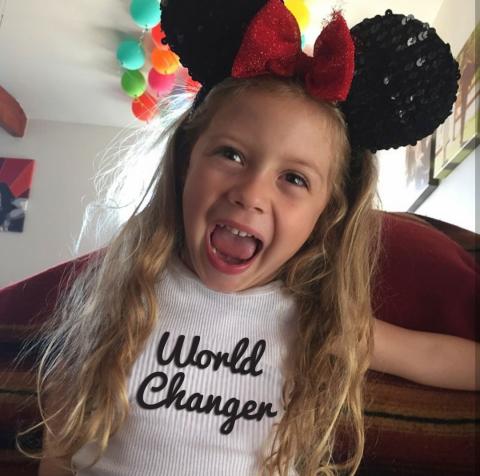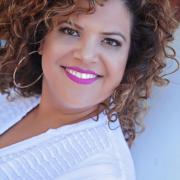
Last weekend as a state of emergency was being declared in Charlottesville, I decided to call an emergency family meeting in my home.
The kids rolled their eyes and put up a fuss in normal kid fashion but as parents, my husband and I are not ones to shy away from tough issues or current events.
As a family, we delve into many different and difficult discussions. Whether it’s the birds and the bees, driving while brown, drinking, drugs, racism or gun violence, we discuss it.
Sadly, our discussions about racism, bigotry, violence and death have been more frequent these last couple of years.
As parents of brown children, my husband and I know, like our ancestors for hundreds of years before us, that we have to deal with tough issues and meet them head on.
The issues we are facing are not new.
I believe we can teach our children to be the next generation of world changers.
Having four children of different ages and different levels of cognitive development means I have to handle these discussions and topics age appropriately.
Lets take what has happened in Charlottesville:
1. Don’t Avoid Tough Conversations
Today’s children are inundated with so much information so it’s important to talk to them about what information they are receiving and in what manner.
You may think by avoiding television and social media you are doing right by them but avoidance is not the answer. Conversations are being held around them (whether you think they are listening or not) so it’s important that you are aware of the conversations you are having with friends, family members or even strangers. It’s better that they hear about it from you or a caregiver, not from another child or in the media.
2. Make It Age Appropriate
Having children in different age groups means I may need to split them up and have different ways of communicating the same issues. Whether they are the youngest or the oldest, I start by asking the kids what they have heard. From there I can decide how much to say and how descriptive to be. You know your kids the best so tailor the conversation based on their personality, temperament, developmental level and cognitive ability. For instance, my youngest is at the age where he has a vivid imagination and gets scared a bit easier than the others. Knowing that, I use short and simple language and make adjustments as needed. I start slow and let him guide the tempo of information.
With any littles, get down to their eye level and focus on the basics. Avoid sharing too many details. Stay on topic but keep it simple, no big words and don't exaggerate.
Kids may not have the language to ask the questions. Their receptive language may not be on the same level as their expressive so they may be hearing things but may not know how to process it in order to tell you how they are feeling.
Just because they are not asking the question doesn’t mean that they don’t know about the situation or that you should avoid talking about these difficult conversations. It may be as simple as they heard something and they are worried but don’t know how to tell you.
3. Check In
As a parent, we don't want to feel like their childhood is being ruined in any way. We want them to have a carefree childhood for as long as they can and I totally get that. Unfortunately we can't always keep real life situations away from them so take that responsibility out of their hands and initiate the conversations.
When the 2016 presidential elections were going on, my youngest children heard racial rhetoric on the playground. They heard things like “build a wall” and “this is our America, go back to where you came from.”
It scared them but they didn’t tell me what they were hearing. It wasn’t until I brought it up during one of many “check-ins” that they shared what they were hearing. They knew they felt hurt and scared by the comments and it confused them.
Once I started the conversation, the floodgates opened and out came everything they had been hearing. It may just be things heard on the playgrounds. Sometimes they are hearing things in our homes or in the home of loved ones and friends.
4. Check yourself
Lead by example. Be cognizant of your reactions, behavior, what and how you say things. This sets the tone for their reactions as well. Our children are watching us for cues on what to say and how they should react.
These are very difficult conversations and most times I am saddened by what’s going on. Like them, I am hearing the incendiary language and I may want to lash out. It’s at these times where it’s important to try and choose not to be part of the vitriolic language.
What helps me is continuing to repeat, “I may not be able to control what others do or say, but I can control how I react and I choose not to be incendiary.”
I choose not to use the same language and spew the same hatred.
5. Fact Check
When events like Charlottesville occur, there’s so much information. It’s important to find a reputable news source and so some research. Charlottesville taught me that sometimes you have to go way back just to get to what the issues are about.
We started the conversation by discussing where Charlottesville was and that the initial protest was about the removal of a Gen Robert E. Lee statue. That brought, “who is he?”
The onus is on parents to do your research. Do not assume kids are taught in school.
Talking about Gen Robert E Lee meant talking about the Confederates and so on.
Do the work because it is so important to give children accurate information especially when talking to kids about such things as race, culture, heritage, history, bias, diversity and inclusion.
6. Call Out Hate and Bigotry
Avoid euphemisms. Call white supremacy, white supremacy. Use the words and call it what it is. Talk to your children ahead of time about possible hurtful and intentionally derogatory words. For instance if there are anti-Semitic messaging or hateful speech that children may encounter, let them know some of the racist messaging they may hear.
In Charlottesville, my children heard anti-semitic and hateful speech. I responded by letting them know how awful the words are and they hurt people when those words are used. We also let them know that those words are not what our family stands for.
We try and tie in a real person they know and ask "how do you think ________ would feel if he heard someone call him a _______?" This helps teach empathy for others.
7. Empower
After talking with children about heavy topics, it’s important for us to end conversations like these with some call to action to encourage empowering our children. Is there a community event or upcoming march they’d like to participate in? Do they wish to take some quiet time alone or together as a family? How about saying a prayer or make a special wish for the safety of others. I try to offset the conversation by giving hugs and offering up some hope and optimism to my children.
Whatever comfort you can offer your children, without being unrealistic, do so. Don’t make promises like things like this will never happen again. Instead let them know there are folks whose jobs are there to try and keep us safe but should anything happen there are good people that can help them.
8. Be Part of the Solution
Events like Charlottesville can be overwhelming and some may feel helpless. How can one person change things? Where do we go from here?
We shouldn’t wait for the tipping point or for things to boil over. Let’s not wait for marches and protests to get moving.
Ask yourself what can I do each day to make a difference?
Start by living with intention.
Here are things you can do today:
- Speak up. Speak out against everyday racism, prejudice, bigotry; be an ally.
- “Culture proof” your home by filling it with multicultural books, artwork, videos, dolls, toys, art and crafts, etc. Teaching children early on that there are other children in the world that don’t look like them increases their worldview and brings an acceptance of others. Normalize “otherness”
- Have friends that are of different cultures and religions. #FriendGoals are that we should all look like the United Nations of friends.
- If traveling is not possible, check out your local ethnic enclave. Take in the sights, sounds, cultural events, music and foods of the community. Join a community organization or non-profit organization that is doing good work in the community.
- Learn alongside your child about other cultures. Be genuine. You can start by saying to someone: “I would love to know more about you and your culture/religion. I come from a genuine place of sincerity and I have a question about…”
Traumatic events last weekend in Charlottesville are not one offs. They have been happening and are occurring with more frequency and it’s frightening. If we are frightened our children probably are as well.
We can support our children by talking to them early and often. Lets teach children to see what unites us not divides us. Lets teach them to respect other cultures by learning about others we share this world with. The more we learn about them, the more we see we are more alike than we are different. It is about inclusion rather than division.
Empower them to become World Changers!
Don't miss Sonia on the Breaking Through Radio Show at 3 p.m. ET on Monday 8/21 talking a bit more on this subject.



The views and opinions expressed in this post are those of the author(s) and do not necessarily reflect those of MomsRising.org.
MomsRising.org strongly encourages our readers to post comments in response to blog posts. We value diversity of opinions and perspectives. Our goals for this space are to be educational, thought-provoking, and respectful. So we actively moderate comments and we reserve the right to edit or remove comments that undermine these goals. Thanks!